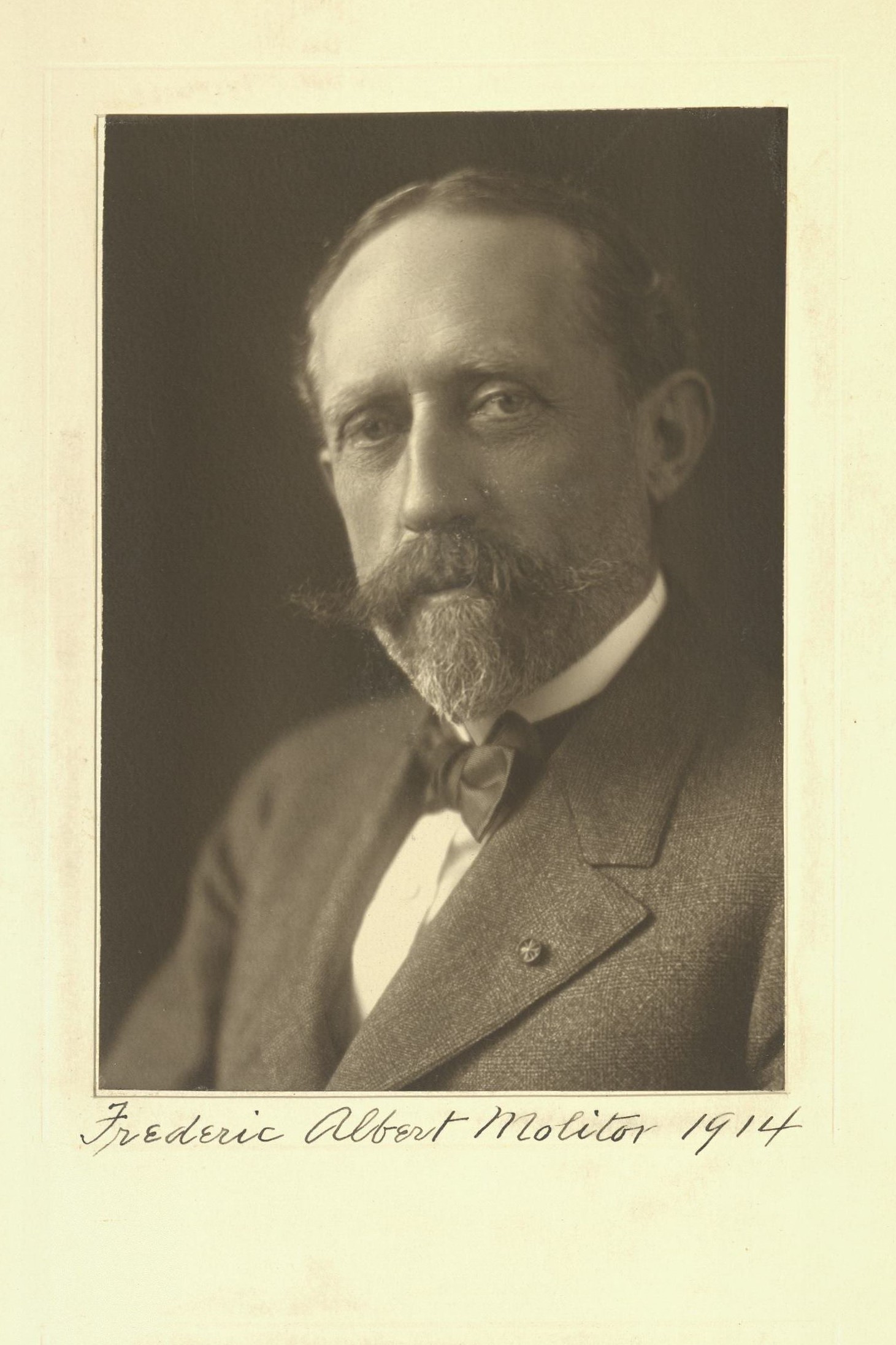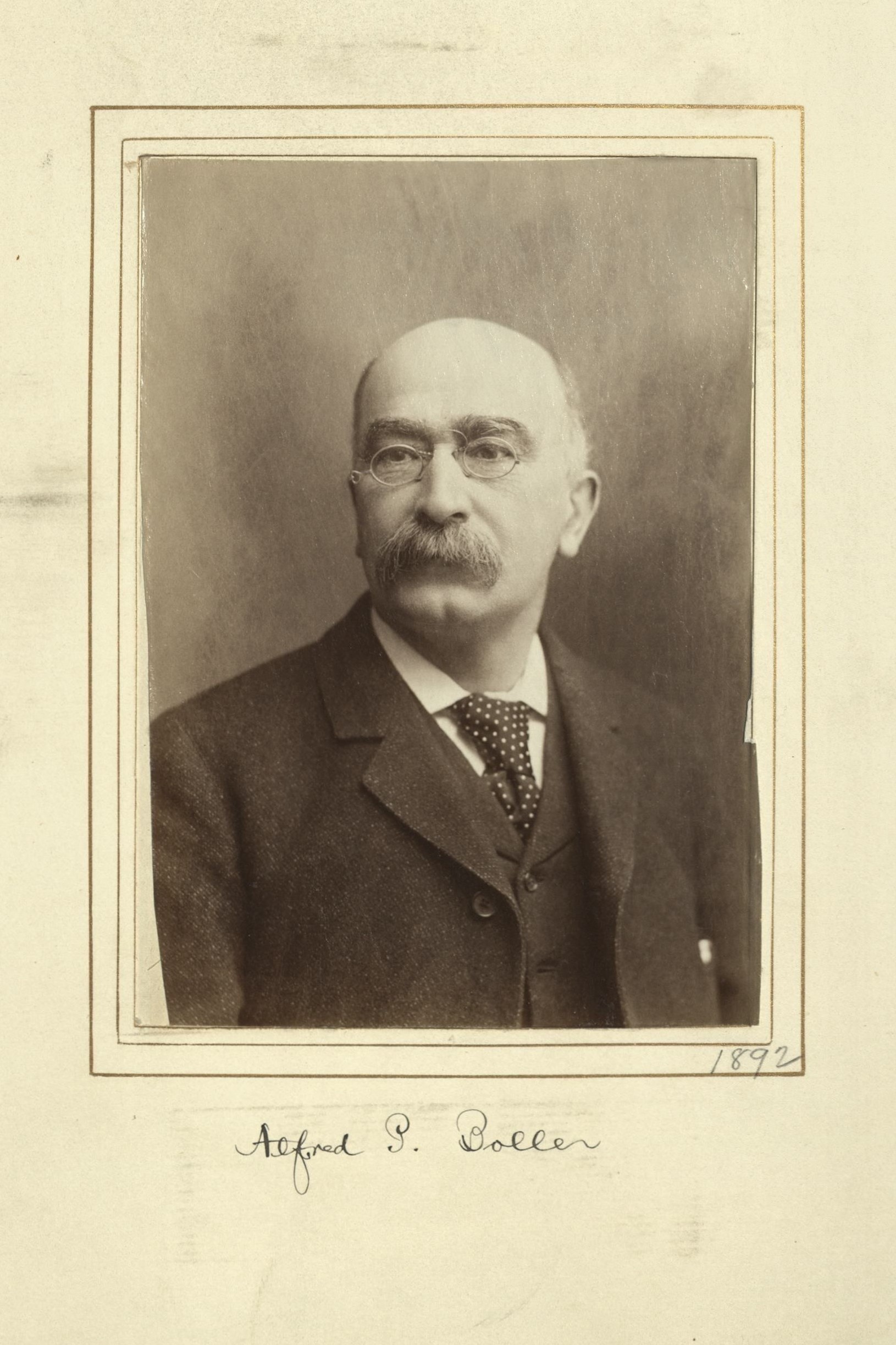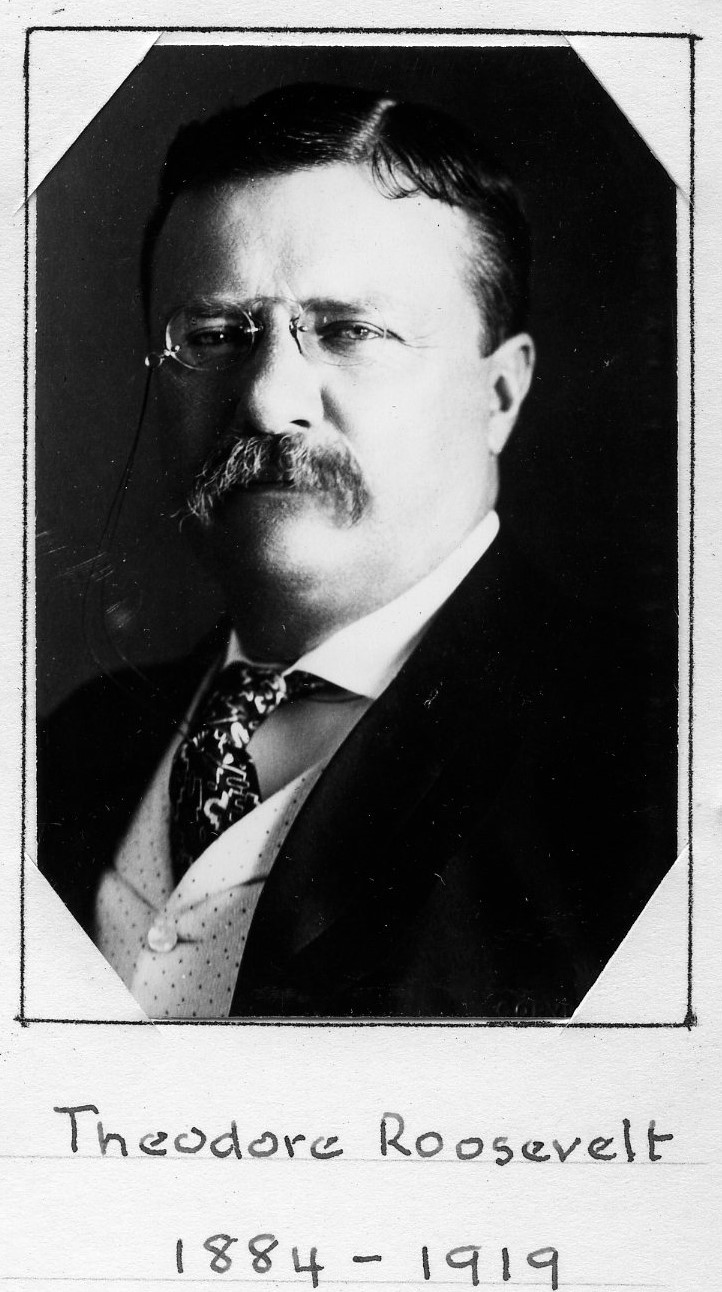Member Directory,
1847 - 1922
Frederic A. Molitor
Civil Engineer
Centurion, 1914–1938
Alfred P. Boller and Henry W. Hodge
Detroit, Michigan
Stamford, Connecticut
Age forty-six
Detroit, Michigan

Century Memorial
These memorials are the work of many fellow Centurions. By custom the individual authorship of phrases, sentences, and paragraphs is fused in a joint result; but the salient personality of Frederic A. Molitor is difficult to present in this fashion. Few members have had as many and as devoted friends as he. It seems fitting to let one of them speak directly of him:
“I am not particularly interested in engineering but whenever Molitor spoke to me about his work, I was impressed by the remarkable combination of engineering knowledge, resourcefulness, and amazingly comprehensive common sense. It was easy for a layman to follow his arguments and it was impossible not to agree with his conclusions as to what was best to do. He had both imagination and inventiveness, highly developed. Suggestions for radical changes that he made to clients twenty years ago would have solved problems which today, by reason of present conditions, cannot be carried out. He was not ahead of his time. He simply saw clearly what was needed then. Had some of the railroads followed his advice there would have been fewer receiverships. He was a marvelous diagnostician as well as an unusually skilful surgeon.
“But nobody at the Century thought of Molitor as an engineering expert. He had a genius for friendship. At the Century you always saw him surrounded by members who had in common only their liking for him. He had moral and physical courage in a superlative degree. He never minced words or soft-pedaled his opinions. Because he was one of the frankest men in the world and because his friends were so assured of his loyalty, they looked upon him as a sort of elder brother. His sense of humor was much more than the ability to hold his own in the Club persiflage or to enjoy a joke even on himself. It gave him an extraordinary balance, a cheerfulness that was never impaired by his own troubles. The only occasions when I saw him serious at the Club was when he was helping somebody out of a jam. What he underwent during his long last illness is not to be written, but to the very end he kept his blessed gift of laughter, the laughter of a man so immune to fear that he could, and did, chuckle at the efforts of a long illness to make him complain.”
The records amply confirm the high standing of Molitor in his profession. In the undeveloped Southwest in the nineties he directed the expansion of a large part of the present Rock Island system. All the qualities of heart and head that make a frontiersman were called into play. Thereafter he built railroads in state after state and country after country. Sent to the Philippines by President Roosevelt he found the islands with some one hundred and twenty miles of railroads and left them with five hundred and fifty. He was making a study of the Brazil railways for English investors when the Lusitania was sunk. Returning by way of Europe (where he visited the war front) he was commissioned a major in the Engineer Reserves. After serving in training camps, he was promoted and placed in command of the Twenty-second Regiment of Engineers which he took overseas in July, 1918. It grieved him sorely that he was detached from duty at the front and assigned to important duties in charge of engineering supplies. An international figure of distinction in his profession, he brought an extraordinarily rich background of experience into his companionship. His appeal was correspondingly wide and he made his friends regardless of age, profession, or philosophy of life. One of his oldest friends in the Club writes of him as “Centurion No. 1.” There would be many candidates for this mythical post. But in every quality that the Club esteems, of companionship, of loyalty to the Club, of affection for his friends, Molitor was surely a great Centurion.
Geoffrey Parsons
1938 Century Memorials



